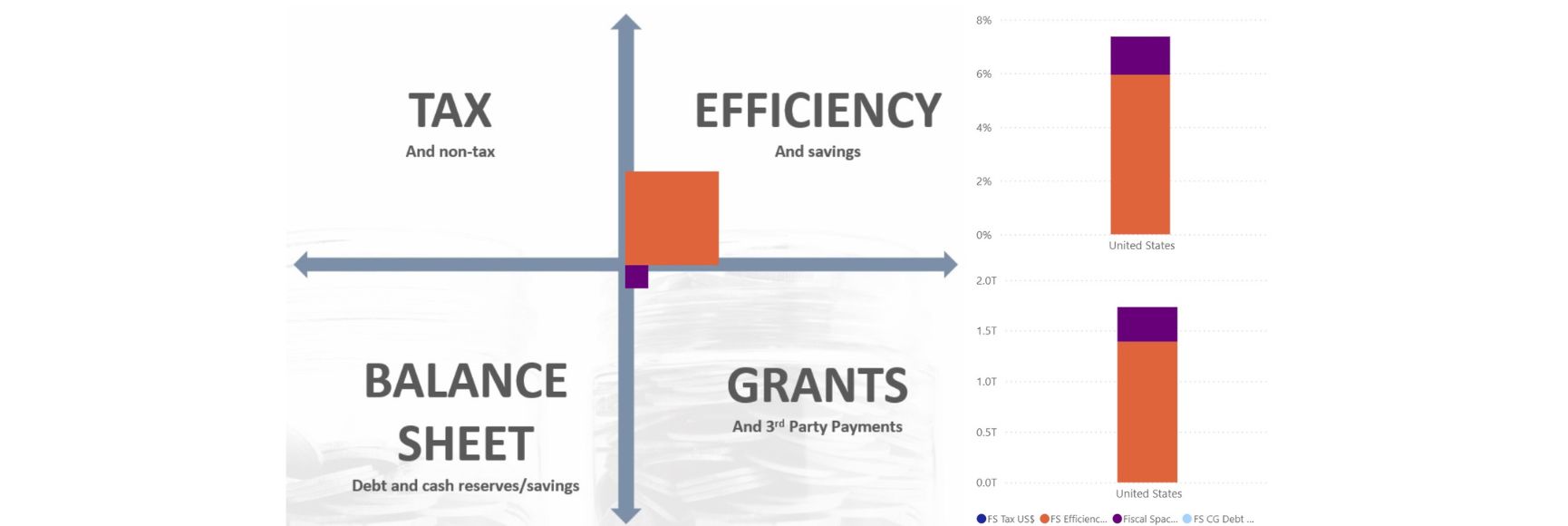Posted by Camille Karamaga
One of the greatest challenges in post-conflict Liberia has been to restore public confidence in the government’s financial management system. In order to build public trust, the government has put in place new fiscal policies, laws and governance institutions to address past weaknesses and build a stable foundation for future economic development, with assistance from FAD and other development partners.[1] Key to these reforms has been the new Public Financial Management Law that was passed in 2009 and underpinned the government’s efforts to rebuild credible systems for prudent and efficient management of public finances.
Why enact a new PFM law in Liberia?
The enactment of the PFM law was the beginning of a long journey towards improving transparency and accountability in the country’s PFM systems. In the words of the President of Liberia at the official launch of the IFMIS on July 12th, 2011, “The enactment, in 2009, of the Public Financial Management Law, followed by the adoption of the enabling regulations in 2010… has, for the first time in Liberia, provided clear terms of reference for key players in the PFM process and the guidelines governing the relationships among those players”. For the first time, the country has a comprehensive PFM law that provides one piece of legislation covering the entire budgeting and accounting cycle consistent with good international practice. The law also lays a clear path for the future development of PFM practices in Liberia.
How did the law shape the future direction of PFM reform?
The PFM law entailed a fundamental shift in management of public resources across the country. Enacting its provisions required an implementation plan covering the short, medium, and long-term. This implementation plan, commencing in late 2009 entailed the following actions:
- Preparation and promulgation of financial regulations;
- Creation and strengthening of accountability institutions;
- Preparation of accounting manuals, directives, guidelines to facilitate interpretation and implementation of specific provisions like debt management, accounting and reporting;
- Adoption of standard PFM, policies, practices and procedures;
- Sensitization, awareness, capacity building and change management;
- Modernization of processes through computerization.
What concrete institutional changes took place?
Strengthening institutional capabilities has involved organizational and procedural reforms including:
- Strengthening the Macro-fiscal Analysis Unit
- Restructuring of the Expenditure Department of the MoF to create a unified accounting department under the supervision of one manager
- Merging the former Bureau of the Budget with the MoF
- Introducing a new CoA and introducing double-entry cash-basis of accounting under the IPSASB[2]
- Automating transaction processing under the framework of the IFMIS Project.
- Restructuring and strengthening the Debt Management Unit
- Establishing a new Aid Management Unit
What have been the keys to successful implementation of the act?
Part of the impetus to implement the PFM law immediately after its passage came from the link between its implementation and HIPC debt relief. The government’s new economic policies were underpinned by the desire to achieve and maintain sustainable levels of public debt. The debt management provisions of the PFM law provided the legal platform for achieving those objectives. Some provisions of the law were part of the package of triggers for attaining the HIPC completion point.
However, MoF leadership on the part of both the minister and senior officials was critical to maintaining this momentum by providing the necessary support and direction in the preparation and attainment of the HIPC decision and completion points. In that respect the GoL leadership was crucial in ensuring the law was implemented in anticipation of the benefits from the HIPC program. Aspects relating to the HIPC completion point were top on the agenda of the minister and his top managers, featuring on the weekly log action for senior management.[3] Departments and units that were tasked with activities relating to the completion point were required to provide progress notes on their achievements-and constraints. In this context, the Macro-Fiscal Analysis and Budget Department embarked on provisions relating to fiscal planning and budget formulation while the Debt Management Unit quickly implemented provisions relating to public debt management. The PFM Reforms Coordination Unit took the lead in coordination to ensure all the actors were on the same page.
Technical assistance, both in-house and external, also played an important role through implementation support. Almost all units of the MoF were supported by either external or local experts, or a combination of both. This technical back-up targeted various areas. The IMF ( FAD) resident advisor and other donor-funded experts were fully supportive of the reform process working alongside the local counterpart staff.
What aspects of the PFM practice have improved?
These legal and institutional changes, and the leadership and assistance that supported their implementation have delivered a number of improvements to the way in which Liberia’s finances have been managed:
- Budget formulation process has a greater macro-fiscal orientation through preparation of an MTFF from which expenditure ceilings to spending agencies are derived. The budget discussions have become more policy-oriented with the production of a policy-focused Budget Framework Paper BFP.
- Budget execution has improved by widening the coverage of the commitment control system; mitigating risks in payroll management through, among other actions, the direct deposit scheme; streamlining transaction processing, and; improving the accounting framework by establishing one accounting department.
- Debt management capacity was enhanced by restructuring and strengthening of the human resource and informational capacities.
- The IFMIS process was initiated from project design, formulation through to implementation. The rollout of new IFMIS has also been a catalyst for the adoption of a revised budget classification and Chart of Accounts consistent with good international practice as required under the new law.
What are the challenges going forward?
While Liberia reached HIPC Completion Point and received debt relief of about USD 5 billion in 2010, the governments drive to implement the remaining provisions of the law through the PFM reforms strategy and action plan continues unabated. The challenges on the road ahead include:
- Improving revenue forecast and cash management in order provide greater predictability during budget execution;
- Expanding coverage of the budget to cover off-budget donor-funded programs;
- Strengthening and rolling-out the accounting and reporting functions to line ministries and agencies;
- Implementing the Internal Audit Strategy;
- Completing the 1st phase of the IFMIS rollout and expanding access to line ministries and agencies in the future;
- Expanding the coverage of the direct deposit system to government personnel to as many counties as possible outside the capital Monrovia;
- Strengthening oversight role of the Legislature supported by external audit (GAC);
- Strengthening the oversight of SoEs in relations to financial and fiscal governance in order to enhance overall government fiscal control;
- Introducing cash management functions and county sub-treasuries in the immediate future;
- Staying on course with the long-term reforms to budget preparation like multi-year planning and the medium-term expenditure frameworks.
What are the lessons for the management of the PFM reform program?
The experience of implementing the PFM Law over the past two years has also highlighted a number of lessons for how the management of the PFM reform program can be improved. In particular:
- Undertaking more sensitization and outreach programs in order to create more ownership;
- Creating a critical mass of technical skills inside the MoF as the driver, custodian of the reforms process;
- Creating and sustaining reform coordination mechanism inside the MoF;
- Strengthening coordination and ownership of the reforms between the executive and legislature;
- Empowerment of the Legislature through capacity building in order to exercise its oversight role better over the executive on PFM matters;
- Establishing a PFM capacity building program that involves other key players outside of the MoF like the civil service agency and training institutions;
- Strengthened coordination between planning and finance ministries;
- Mainstreaming reform activities in institutional strategies and departmental work plans;
- Strengthened coordination amongst donors and between government and the development partners.
[1] World Bank, African Development Bank, DFID, European Commission, and USAID.
[2] IPSAS: International Public Sector Accounting Standards Board.
[3] Senior management has a weekly routine meeting to discuss key policy issues.
Note: The posts on the IMF PFM Blog should not be reported as representing the views of the IMF. The views expressed are those of the authors and do not necessarily represent those of the IMF or IMF policy.





